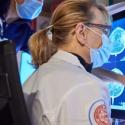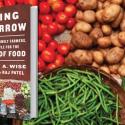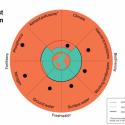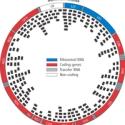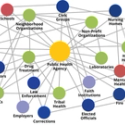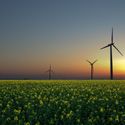Science Is Essential
Science touches so many aspects of modern life that it's hard to keep up. Through our programs and this website, Science for the Public provides up-to-date information about scientific innovations, discoveries, and issues that are shaping modern knowledge.
Coming Events
No events are scheduled for June
Recent Events
Space Debris Alert!: The Potential Impact on the Ozone Layer and Earth’s Climate
05/27/25 (rescheduled from April) Thousands of satellites orbit Earth. At the end of their missions, they drop into and burn up in the stratosphere, depositing ash that contains oxides and pollutants that are affecting both the ozone layer and the planet's climate. Atmospheric scientists are working to analyze the aerosols and their worrisome impact. Daniel Cziczo
The Brain-Computer-Interface Paradox
05-20-25 For individuals paralyzed by injury, stroke or ALS, brain-computer-interface (BCI) devices can enable movement and even speech. However, there are concerns: specifically, that such technology could be developed for mind control. Lukas Meier
Cancer Research: How It Works and Why It's Crucial Today
04/08/25 Numerous types of cancer are increasing today and scientists are trying to identify the causes. That's why cancer research is one of the most important concerns of modern science. We learn how the research is done and also why federal funding for this work is essential. Gerald Denis
Antimatter
Each particle has a opposite form, its anti-particle, a discovery that has had wide-ranging effects
Resistance to New Ideas
Many of the most important advances in scientific understanding were initially rejected or ignored.
Life: Evolution and Extinction
The long reign of bacteria, the eventual branching and diversification, symbiogenesis, the dramatic mass extinctions and resurgence of life...
Featured Items
The Battle for the Future of Food
06/11/24 WGBH Forum Network webinar. Industrial agriculture (“Big Ag”) is a major contributor to global warming, environmental destruction, and disruption of good farming traditions. There is a better way to feed the world without destroying the planet. Tim Wise
Addressing the Threat to Earth System Boundaries
09/12/23 The breaching of most of the Earth system boundaries (ESBs) is destroying the planet and the crisis must be addressed immediately. Solutions must include justice for those who suffer displacement, health and economic impacts of the crisis. Diana Liverman
Heads Up! Surprising Stats
Science for the Public is committed to improving public knowledge of science and public appreciation for the contributions of science to social progress.

Elusive Dark Matter and the Earliest Galaxies
10/23/24 The James Webb Space Telescope (JWST) and other advanced technologies are providing unprecedented data about the early universe. Astronomers are developing a new understanding of how the earliest stars and galaxies emerged. Julian Muñoz
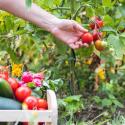
What Your Food Ate
07/18/23 The actual nutritional value of our food depends on the quality of soil in which it is grown. Healthy soil, healthy people, healthy planet.
David R. Montgomery & Anne Biklé
Our Rising Seas
02/19/17 Sea-level patterns over 2000 years and the situation now. Andrew Kemp
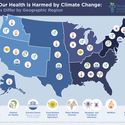
Climate Change Brings Changes to Medical Training
11/11/20 Because of climate change, many regions are experiencing diseases introduced by unfamiliar insects, microbes, and other sources. This situation requires a new approach to training medical students.
Gaurab Basu, M.D., MPH
Today's Featured Contributors
Featured Author
Robert Whitaker
One of the best sources on overprescribing and the serious long-range effects of many psychotropic drugs
Featured Guest
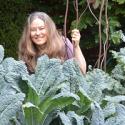
Anne Biklé
Biologist and Environmental Planner, and co-author of two important books explaining soil as a crucial ecosystem.
As a world society, it seems clear that we have arrived at a point in our history when there must be a major increase in the capability of ordinary people to cope with the scientific and technological culture that is shaping their lives and the lives of their children.
—Leon Lederman, Nobel Laureate in physics

